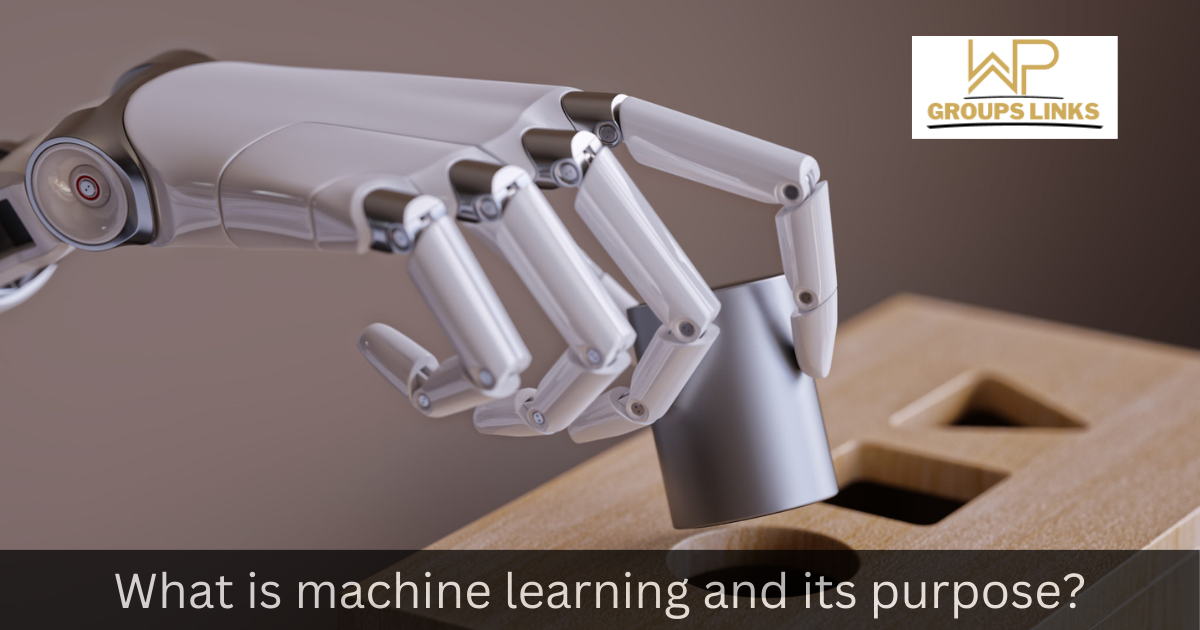Machine Learning and its Purpose
Machine learning has emerged as a revolutionary technology that has the potential to transform industries and enhance various aspects of our lives. In this article, we delve into the concept of machine learning, its purpose, and its wide-ranging applications. From its foundational principles to real-world implementations, we aim to provide a comprehensive understanding of this powerful field.
The Basics of Machine Learning
Definition and Overview: In this section, we introduce the fundamental concept of machine learning. We define machine learning as a subset of artificial intelligence (AI) that enables computers to learn from data and improve performance on specific tasks without explicit programming.
Types of Machine Learning: We explore the different types of machine learning approaches, including supervised learning, unsupervised learning, semi-supervised learning, and reinforcement learning. Each type has its own unique characteristics and applications.
Key Components: Here, we discuss the essential components of a machine learning system, such as training data, algorithms, model building, and evaluation metrics. Understanding these components is crucial to grasp the functioning of machine learning models.
Purpose and Benefits of Machine Learning
Automation and Efficiency: Machine learning aims to automate complex tasks and processes, leading to increased efficiency and productivity. We discuss how machine learning algorithms can analyze large datasets, extract valuable insights, and make accurate predictions or decisions.
Pattern Recognition and Predictive Analytics: Machine learning enables pattern recognition and predictive analytics by identifying hidden patterns and relationships within data. We explore how machine learning models can be trained to detect patterns, classify data, and forecast future outcomes.
Personalization and Recommendation Systems: Machine learning plays a vital role in personalization and recommendation systems, tailoring experiences and suggestions based on individual preferences. We discuss how machine learning algorithms analyze user data to provide personalized recommendations in various domains, such as e-commerce, streaming services, and social media.
Applications of Machine Learning
Natural Language Processing (NLP): We explore how machine learning powers NLP applications, such as language translation, sentiment analysis, chatbots, and voice assistants. NLP allows computers to understand and generate human language, enabling seamless human-machine interactions.
Computer Vision: Machine learning algorithms excel in computer vision tasks, enabling machines to interpret and understand visual data. We discuss applications like image classification, object detection, facial recognition, and autonomous vehicles, showcasing the transformative impact of machine learning in this domain.
Healthcare and Medical Diagnosis:
Machine learning has revolutionized healthcare by enabling accurate medical diagnosis, predicting disease outcomes, and assisting in drug discovery. We explore applications such as medical image analysis, patient monitoring, and personalized medicine, highlighting the potential to improve patient care and treatment outcomes.
Finance and Fraud Detection: Machine learning plays a crucial role in the finance industry, automating tasks like risk assessment, credit scoring, and fraud detection. We discuss how machine learning models analyze vast financial datasets, identify patterns of fraudulent behavior, and provide real-time fraud prevention measures.
Smart Cities and IoT: Machine learning contributes to building smart cities by processing data from interconnected devices and sensors. We explore how machine learning enables urban planning, energy optimization, traffic management, and environmental monitoring, fostering sustainable and efficient cities.
Marketing and Customer Analytics: Machine learning enables marketers to extract valuable insights from customer data, predict consumer behavior, and personalize marketing campaigns. We discuss applications such as customer segmentation, churn prediction, and targeted advertising, showcasing the power of machine learning in enhancing marketing strategies.
Industry and Manufacturing:
Machine learning is revolutionizing the industry and manufacturing sectors by optimizing processes, improving efficiency, and enabling predictive maintenance. Here are some key applications of machine learning in industry and manufacturing:
Predictive Maintenance: Machine learning algorithms can analyze historical sensor data from machinery and equipment to predict potential failures or maintenance needs. By identifying patterns and anomalies in the data, predictive maintenance models can help schedule maintenance activities proactively, reducing unplanned downtime, optimizing maintenance costs, and extending the lifespan of equipment.
Supply Chain Optimization:
Machine learning can optimize supply chain operations by analyzing data related to demand forecasting, inventory management, and logistics. By utilizing historical sales data, market trends, and external factors, machine learning models can provide accurate demand forecasts, optimize inventory levels, and enhance logistics planning, ultimately reducing costs and improving customer satisfaction.
Process Optimization: Machine learning algorithms can analyze sensor data, production parameters, and historical performance to optimize manufacturing processes. By identifying patterns and correlations, these models can suggest parameter adjustments, optimize machine settings, and enhance overall process efficiency. This leads to improved productivity, reduced waste, and enhanced product quality.
Energy Efficiency:
Machine learning can contribute to energy optimization in manufacturing facilities. By analyzing energy consumption patterns, equipment efficiency, and production schedules, machine learning models can identify opportunities for energy savings and provide recommendations for optimizing energy usage. This not only reduces energy costs but also helps in achieving sustainability goals.
Robotics and Automation: Machine learning is crucial in enabling robotics and automation in manufacturing. By training robots and autonomous systems using machine learning algorithms, they can learn to perform complex tasks, adapt to different scenarios, and make real-time decisions. This enhances production efficiency, accuracy, and flexibility while reducing the need for human intervention in repetitive or hazardous tasks.
Supply Chain and Demand Forecasting:
Machine learning models can analyze historical sales data, market trends, and external factors to forecast demand accurately. This helps manufacturers optimize production schedules, manage inventory levels, and align supply with demand. Accurate demand forecasting improves customer satisfaction, reduces stock outs, and minimizes excess inventory.
Safety and Risk Management: Machine learning algorithms can analyze sensor data and historical records to identify potential safety risks in manufacturing environments. By detecting anomalies, predicting equipment failures, and analyzing worker behavior, machine learning models can help prevent accidents, enhance workplace safety, and support proactive risk management.
Machine learning is transforming the industry and manufacturing sectors, empowering businesses to optimize processes, improve efficiency, reduce costs, and enhance product quality. With continued advancements in machine learning algorithms and data analytics, the potential for innovation and improvement in these sectors is vast.



